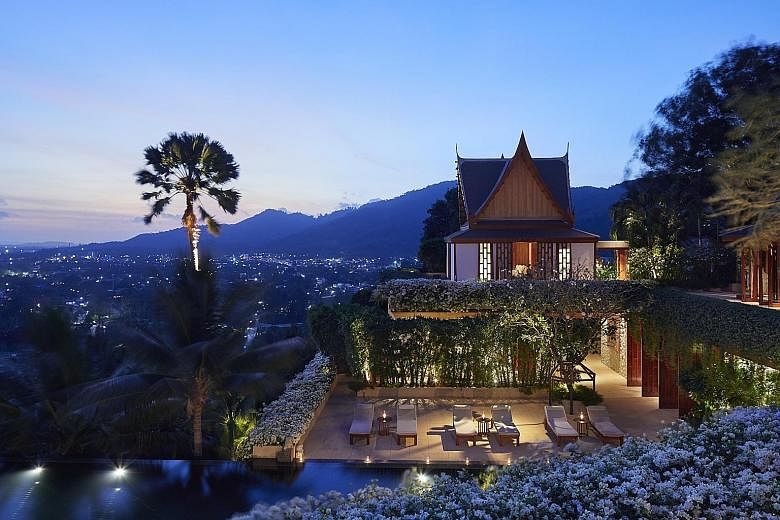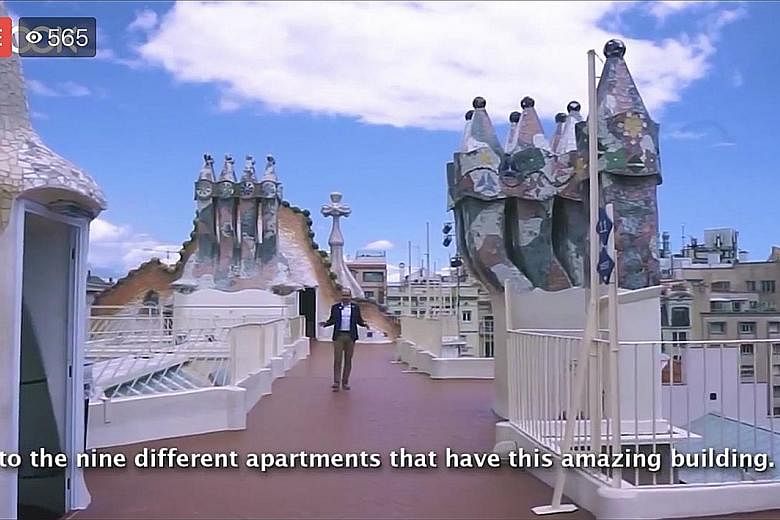During a virtual travel summit last Wednesday, those logging in from Singapore like me sipped hand-delivered cocktails at home while journeying around the world in six hours.
The Web In Travel (Wit) event was a pandemic-forged experiment that united a thousand travel professionals near and far, including Hong Kong, Riyadh and Seattle.
The live event, a semblance of its physical versions before Covid-19, involved interviews with travel players such as Accor, Expedia and Klook.
From different cities, "letters" or spoken reflections by leading minds about the altered state of travel alluded to the air of sadness and also the joy of discovery that will not be erased from psyches. Guests included Singapore Tourism Board chief executive Keith Tan.
Staged by Wit, a platform for online travel based here, the sparkling summit ended with a fun debate and then a dance party with DJ Aldrin.
A similar live-streamed summit by the Pacific Asia Travel Association (Pata) also took off last week. Like Wit, this was a free, first-time venture.
With a mobile app, I could wander through its Dream To Travel festival (June 22 to July 17) that is hosting virtual tours, panels, networking clusters, movies and games from the Bangkok base.
Travel is now rebooting incrementally, and these online festivals are one indication.
At the same time, planes are flying domestic routes, hotels are seeing occupancy of 40 per cent in some markets and Trip.com is reporting sales of US$70 million (S$97.3 million) from its live-streamed promotions that were piloted mainly in China.
But, hold the champagne. The pandemic is still playing out.
While there are reopenings, pivots and signs of ebullience, there are also fresh outbreaks of Covid-19, job losses across tourism and global economic pain.
So we will have a long-drawn, layered narrative of both green shoots of growth and buried plans as world tourism zig-zags towards recovery.
This mixed story is the case, whether one is scrutinising entire sectors like aviation or drills down to the company level.
Take Klook, the popular Hong Kong-based travel activities and services booking platform that has a Singapore office. The unicorn has retrenched and furloughed staff to cut costs.
But in an agile move, it also launched Klook Home within a month, creating virtual experiences and home-based learning for a shut-in world.
There are DIY kits to make masks or bubble tea, for instance, and virtual tours of Barcelona's Casa Batllo designed by surrealist architect Antoni Gaudi or Bali Safari and Marine Park where baby komodo dragons loll.
Such tours from Klook and other vendors, immersive up to a point, have been quick tickets to elsewhere for me.
Similarly, the picture is mixed to murky for airlines that can still rely on domestic tourism, like Qantas.
"Travel within Australia is showing careful signs of recovery," its chief executive Alan Joyce said last week. The group expects to break even this financial year ending September.
The bigger story is that it is fighting for survival, however. It is cutting 6,000 jobs from a 29,000-strong workforce. Another 15,000 will be on furlough till flights pick up.
The carrier will also ground 100 aircraft for up to a year.
Qantas, which turns a joyless 100 this year, is taking the realistic view that there will not be international operations of real scale until July next year.
Revenue, Mr Joyce cautioned, will be much lower for several years so "this means becoming a much smaller airline in the short term".
The mixed signals continue unabated. Cirium, a travel industry data and analytics company, expects recovery in Asia-Pacific aviation from now on.
Citing global flight schedule data, Ms Joanna Lu, its head of consultancy for Asia, said last Tuesday: "Those with large domestic markets are expected to see capacity back to pre-Covid-19 levels or even growth by July."
She noted: "The global market reached rock bottom in April this year and the only way now is up."
The reality is that recovery is beginning from an abysmal baseline, when the skies emptied out.
April traffic for hard-hit Hong Kong was down by more than 73 per cent compared with the same period in 2019, for instance.
Likewise, a snapshot of the hotel scene fuses hope and anxiety. Even as staff are laid off around the world, news releases of hotel reopenings are landing with greater frequency in my inbox.
"Aman reawakens across Europe," I read about the luxury hotel group. Closer home, Amanpuri in Phuket reopens on July 1.
Hotel occupancy rates are now hovering around 40 per cent in domestic-driven markets like the United States and China, I learn at webinars.
In Hyatt's case, its hotels in China are now running at or better than 50 per cent occupancy, up from single-digits in mid-February.
During the Labour Day holiday last month, some hotels achieved 90 per cent occupancy.
In Hong Kong, staycations have boosted occupancy within the range of 35 to 85 per cent on weekends.
In Thailand, its Hyatt Regency Hua Hin sees more than 86 per cent occupancy on weekends.
Mr David Udell, president (Asia Pacific) of Hyatt Hotels Corporation, said: "Recovery and reopening our hotels needs to be more than just about cleaning and sanitisation. We need to focus on a more holistic sense of well-being."
Hence, Hyatt has created guest experiences such as healthy cooking classes: it can also deliver yoga mats or weights to rooms.
Frasers Hospitality, the homegrown global hospitality company, has kept its six Singapore properties open.
In Asia, 38 of its 42 properties are open, and the rest are set to reopen in the coming weeks and months.
In Europe, Frasers has 55 properties, including its Malmaison and Hotel Du Vin brands.
Fifteen have already opened their doors, with 40 scheduled to do so from July 4 onwards.
The list of highs and lows does not end.
Last week alone, the Walt Disney Company scrapped plans to reopen its Californian theme parks next month - although Shanghai Disneyland reopened last month with social distancing.
Last Monday, Trip.com launched its Travel On drive to reignite tourism in a glitzy virtual event.
This involves anything from "flexibooking" guarantees to hygiene protocols to new live-streamed sales - following a rough season when the Chinese online powerhouse's outbound market was decimated.
And companies like Web In Travel keep rolling out new ideas even as travel is still tattered.
So it is an uncertain celebration for now.
In a recent commentary, Mr Rafat Ali, founder and chief executive of travel intelligence platform Skift, said: "Let's not confuse reopening with recovery."
Sellers will do whatever it takes to restart, including reopening in a pandemic, he pointed out.
"The buy side, the travellers, is where recovery resides and will be a three-to five-year cycle."
In the absence of a vaccine and clear quarantine regulations at destinations, vacation-mad people may voice their pent-up wanderlust, but hesitate to step out.
And if financial anxiety deepens, recovery in the world of travel will not be in sight for a long while.
And yet, when I popped by the virtual summits and spent time on research last week, it was possible to scan the far horizon for changes and to believe the spirit of travel is irrepressible.



